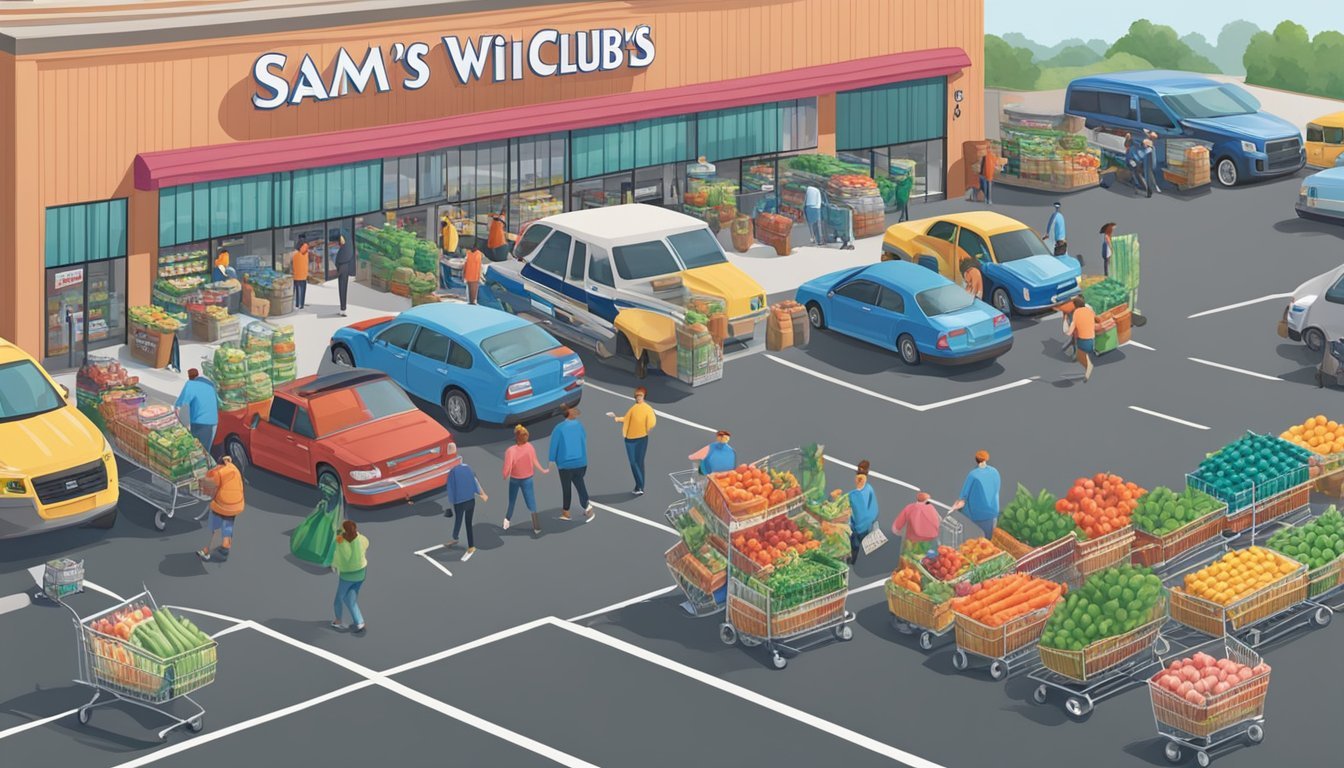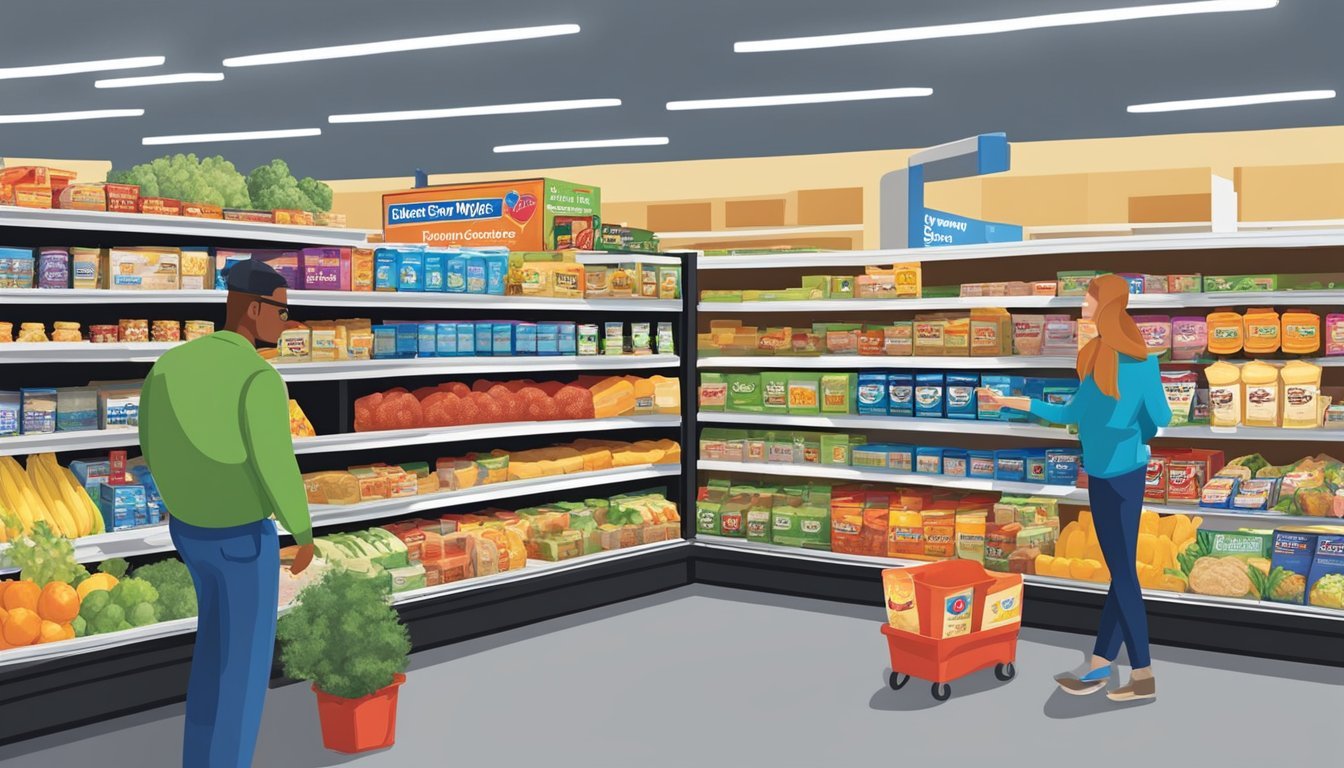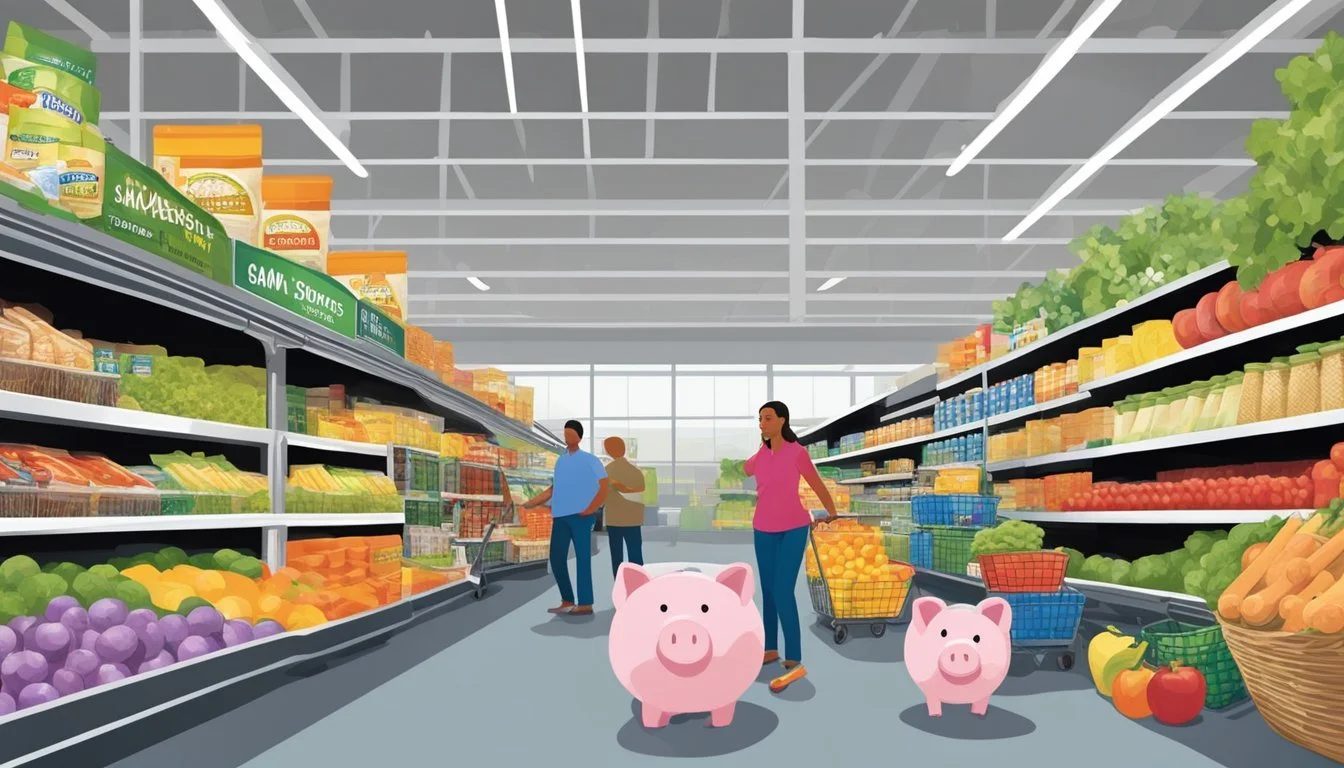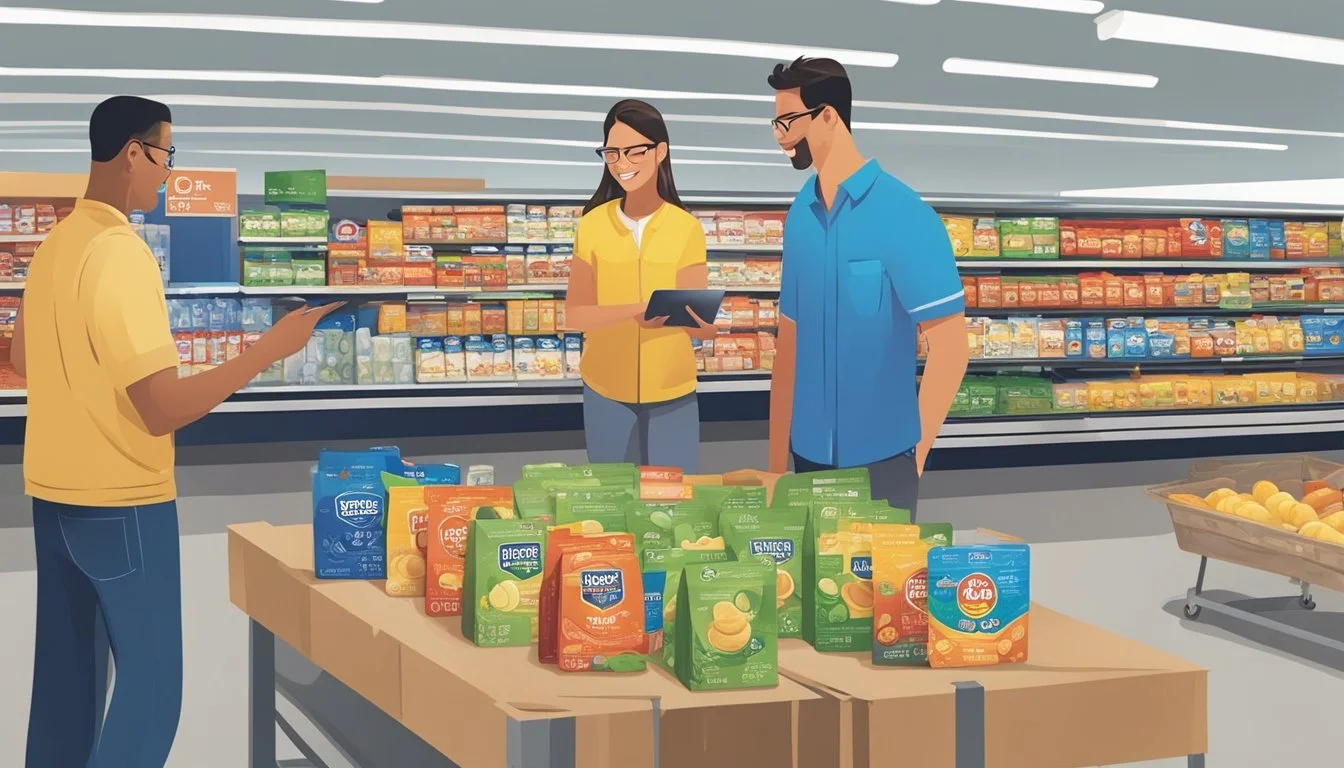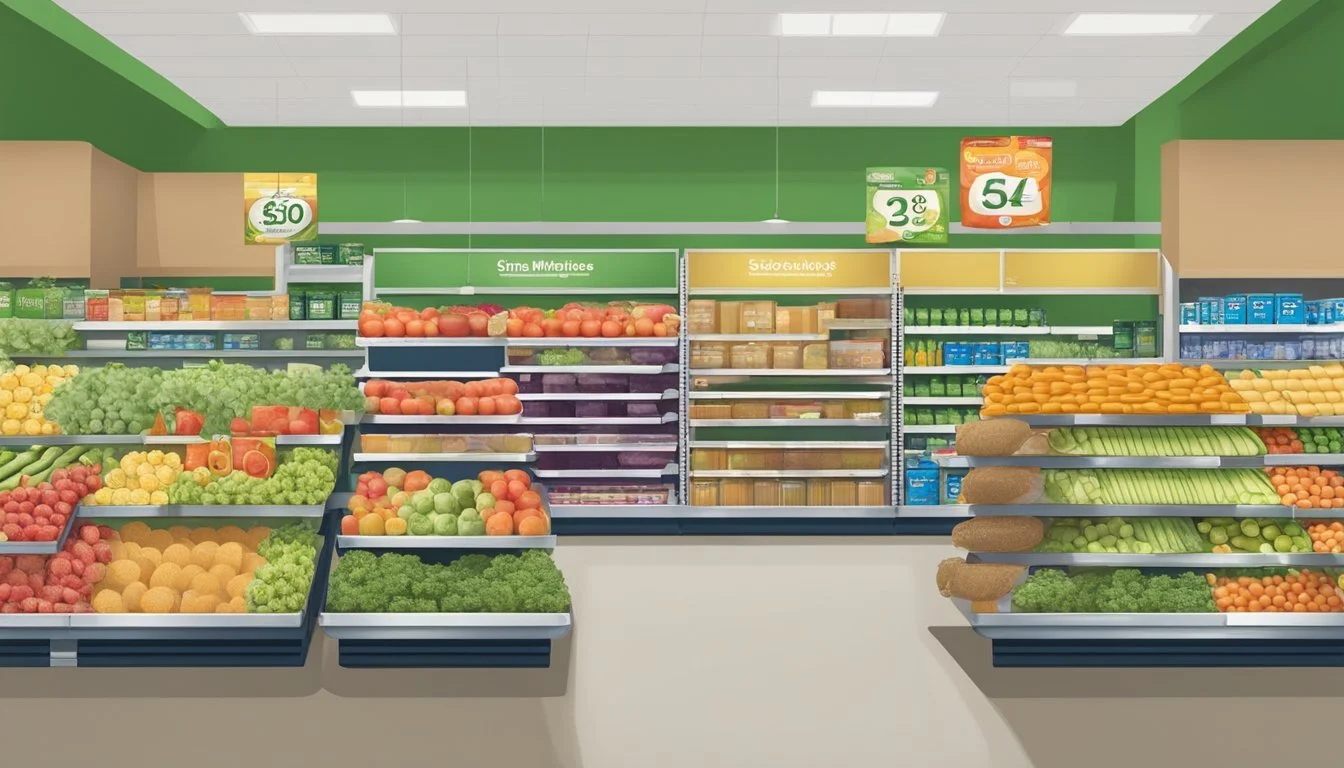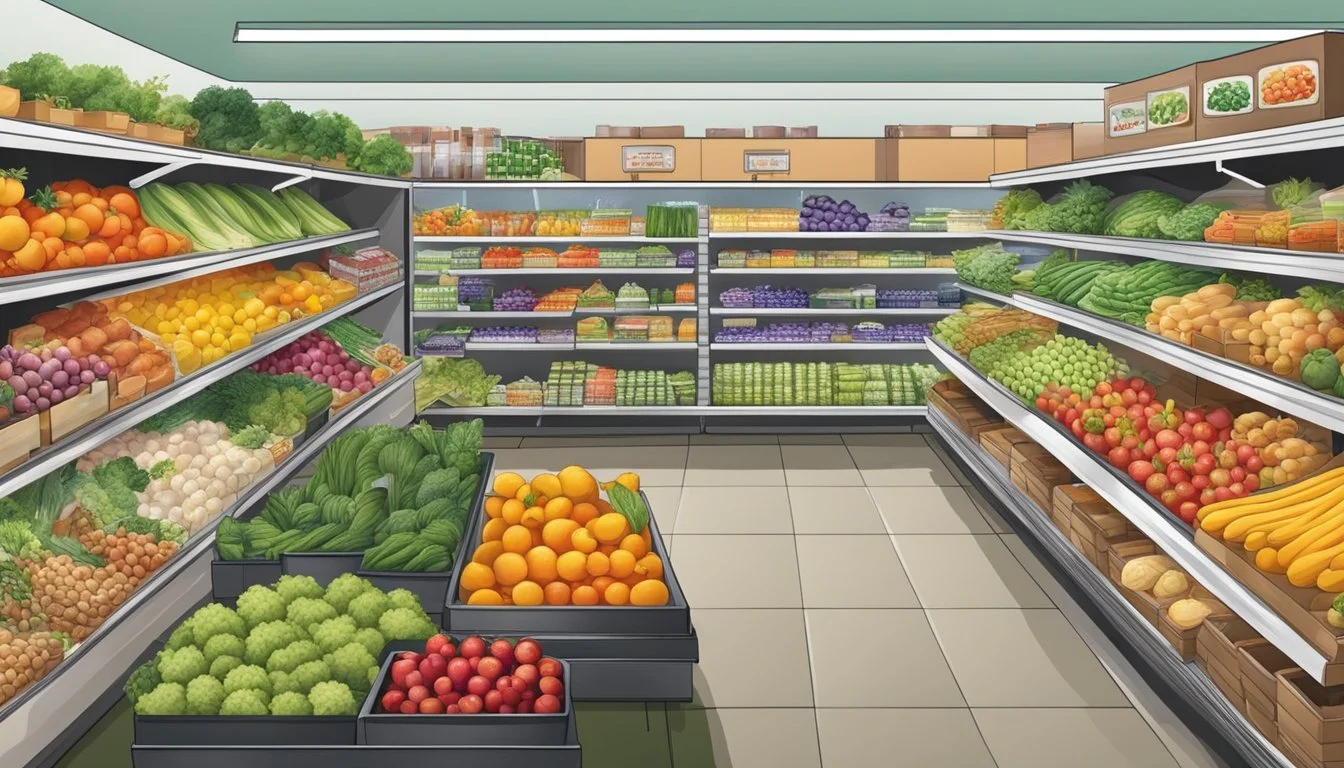Sam's Club vs Piggly Wiggly
Unbiased Comparison of Grocery Giants
Part of Our Grocery Store Guide with Details on Sam's Club and Piggly Wiggly
When shopping for groceries, a common question arises: which store offers the best value for money? Sam's Club and Piggly Wiggly represent two different grocery shopping experiences in the United States. Sam's Club is a membership-based warehouse club owned by Walmart Inc., known for its bulk products and savings for members. On the other hand, Piggly Wiggly, with its historical claim as the first self-service grocery store, focuses on a more traditional shopping experience.
Comparing these two retailers goes beyond just the price point; it's about the overall shopping experience, product variety, and quality of goods. Sam's Club typically appeals to those looking to stock up and save in the long run, while Piggly Wiggly caters to shoppers seeking immediate convenience with a localized product selection. Each store has its unique set of advantages that can influence a shopper's decision.
In analyzing which grocery store is better, factors such as store layout, membership fees, product brands, and special services come into play. While Sam's Club might save time and money for those looking to buy in bulk, Piggly Wiggly's focus on community involvement and customer service could be more appealing to shoppers who prioritize a personalized in-store experience. The determination of which is superior depends on the individual consumer's needs and shopping preferences.
Overview of Sam's Club and Piggly Wiggly
Choosing the right grocery store can influence shopping experiences and budgets. This section provides a historical perspective and regional footprint of two distinct retail brands in the grocery industry: Sam's Club and Piggly Wiggly.
History and Brand Presence
Sam's Club began in 1983 as a division of Walmart Inc., with the intention of providing a wide range of products in bulk, primarily to small business owners and individuals seeking to buy in large quantities. As a members-only warehouse club, it shares its parent company's reputation for offering products at low prices. Sam's Club has since evolved to compete directly with other warehouse clubs like Costco and BJ's Wholesale Club.
Piggly Wiggly, established in 1916, holds the distinction of being the first self-service grocery store in the United States. It introduced features such as individual item pricing and shopping carts. While not as expansive as national chains like Kroger or Walmart, Piggly Wiggly maintains a strong brand presence in the regions it serves, often characterized by a more personal and localized shopping experience.
Store Locations and Regional Influence
Sam's Club operates over 600 membership warehouse clubs across the United States. Its presence spans various regions, with the majority of its locations concentrated in the South and Midwest. The chain's broad national reach competes with other major retailers such as Costco, Trader Joe's, and BJ's Wholesale Club.
Piggly Wiggly, in contrast, is primarily a regional player, with roughly 500 stores located mainly in the Southern and Midwestern United States. This regional focus allows Piggly Wiggly to tailor its offerings and store atmosphere to the preferences of the local communities it serves, similarly to regional stores like Publix, Food Lion, and Hy-Vee. Despite its smaller size, Piggly Wiggly's regional influence is notable, particularly when compared to larger supermarket chains like Aldi, Kroger, and Wegmans.
Membership and Pricing Structure
In comparing the membership and pricing structures of Sam's Club and Piggly Wiggly, it's important to consider the types of memberships available and how each can influence the overall shopping budget.
Membership Types and Fees
Sam's Club offers two main membership options:
Club Membership: $50 annually
Basic shopping privileges
Access to in-store and online deals
Plus Membership: $110 annually
Includes all Club Membership benefits
Additional perks such as free shipping, early shopping hours, and cash rewards
Piggly Wiggly does not operate on a membership model, allowing shoppers to purchase goods without an upfront fee.
Price Comparison
When looking at the price comparison between Sam's Club and Piggly Wiggly, shoppers should consider bulk purchasing at Sam's Club, which can lead to savings over time, particularly for families and businesses. Sam's Club's affiliation with Walmart may contribute to lower prices due to extensive buying power.
Piggly Wiggly, while not a membership-based store, competes in the market by offering competitive pricing and local deals that could be better suited for individual shoppers or those with a tighter budget.
Here's a quick breakdown of pricing benefits:
Sam's Club: Potentially lower unit prices, particularly for bulk items, which can lead to long-term savings.
Piggly Wiggly: No membership fees, which saves money upfront, and competitive pricing on individual items.
Shoppers should note that savings at warehouse clubs like Sam's Club could vary based on shopping habits, and comparing individual item costs at both types of stores can help determine the best value.
Product Selection and Brands
When comparing Sam's Club and Piggly Wiggly, one must consider the range and quality of products available as well as the competition between store and national brands.
Quality and Variety of Goods
Sam's Club prides itself on offering an extensive selection of goods, from produce to baked goods. They typically stock a large variety of items including meat, dairy, and pantry staples, catering to both individual and bulk purchasers. Their Kirkland Signature brand is renowned for high-quality products that often rival their national brand counterparts, particularly in categories like meat and baked goods.
Piggly Wiggly, on the other hand, offers a more curated selection of items, with an emphasis on providing fresh produce, meat, and vegetables. While their product range might not match the vastness of a wholesale retailer, customers can still find good quality across their grocery items, canned goods, and dairy products.
Store Brand versus National Brands
Sam's Club has made a considerable impact with its Kirkland Signature line, offering customers an alternative to national brands with many products, including eggs, peanut butter, and bread. Their store brand is positioned as a high-quality, cost-effective option for shoppers, often available in larger quantities suitable for families.
Piggly Wiggly emphasizes the competitive quality of its store brand, which usually matches, and sometimes exceeds, the quality of similar national brand products. Their store brand, which includes a range of generic brand items, provides consumers with a value option without sacrificing quality, especially notable in staples like dairy, canned goods, and grocery items.
Shopping Experience
When considering Sam's Club and Piggly Wiggly, shoppers should be aware of the distinct in-store and digital services each provides, tailoring to different aspects of the grocery shopping experience.
In-Store Services
Sam's Club takes pride in its large, warehouse-style stores with a wide assortment of goods ranging from groceries to electronics. The Club Membership at Sam’s Club entitles members to wholesale prices on bulk items, which can be advantageous for party planning or large family shopping. Notably, Sam’s Club, a subsidiary of Walmart, offers a premium membership option called Sam’s Club Plus which includes additional benefits such as free shipping on online orders, early shopping hours, and extra savings on prescription drugs.
In contrast, Piggly Wiggly, recognized as the first true supermarket, offers a more traditional grocery shopping experience with a focus on local and regional products. Piggly Wiggly's stores often feature friendly customer service and community involvement, which can create a more familiar and personalized shopping atmosphere. Customers may find coupons and weekly deals that provide savings without the need for a paid membership.
Online and Curbside Services
Sam's Club has invested in their online presence, offering an intuitive online shopping platform where members can benefit from free shipping on eligible items. They have also adapted well to the curbside pickup trend, allowing customers to shop virtually and then pick up their groceries without having to leave their vehicle. This service is provided at no extra cost with a Club Membership.
Piggly Wiggly, though traditionally focused on in-store shopping, has also begun to offer online and curbside services at select locations. The curbside pickup option provides convenience for customers who may not have the time to browse the aisles. However, the availability and execution of these services can vary widely by individual store locations. Some Piggly Wiggly stores are owned by larger grocery chains such as Publix, Albertsons, or Safeway, which may influence the level of online services available.
Additional Benefits and Features
Both Sam's Club and Piggly Wiggly offer unique benefits, but their approaches to refining the grocery shopping experience are quite different. Focusing on the specific additional perks each store provides can give shoppers a better sense of their grocery shopping preferences.
Gasoline and Travel Deals
Sam's Club members benefit from discounted gas prices, which often prove to be significantly lower than typical local gas stations. For those who travel regularly or commute, this can translate to considerable annual savings. Furthermore, Sam's Club offers travel discounts including savings on hotels, rental cars, and vacation packages, making it an attractive option for those with wanderlust looking to economize on travel.
Piggly Wiggly, while not typically associated with travel or gasoline benefits, may have store-specific offers, but they are not a widespread feature of its brand like Sam's Club.
Exclusive Offers and Discounts
At Sam's Club, the savings extend to in-store purchases with member-only pricing. The retail warehouse provides exclusive discounts on bulk purchases, which is ideal for family shoppers or those hosting events who need larger quantities at lower prices. Additionally, a reward system is in place where members accrue eCash for purchases that can be used for even further savings.
Piggly Wiggly has a reputation for localized customer service and may offer special discounts tailored to the community. Their deals might not be as expansive as national chains, but they often have weekly specials and discounts that are competitive within their market. Piggly Wiggly's benefits focus more on the immediate savings rather than a broader rewards program.
Consumer Satisfaction and Feedback
Consumer satisfaction and feedback often guide shoppers in deciding where to allocate their grocery budget. Customer surveys and loyalty programs reveal important insights into customer experiences with stores like Sam's Club and Piggly Wiggly.
Customer Surveys and Reviews
Surveys indicate that Sam's Club offers competitive pricing, especially in bulk purchases which may contribute to its appeal among shoppers looking for Best Deals. However, impulse buys tend to be more expensive due to the larger quantities sold. Piggly Wiggly is praised for the Quality of its groceries and cleanliness of its stores. Although specific survey results from sources like Consumer Reports are not provided, they have rated grocery stores based on criteria that include shopper satisfaction.
Sam's Club:
Bulk pricing offers value, albeit at a higher upfront cost.
Larger quantities may lead to waste due to expiration.
Piggly Wiggly:
Rated highly on cleanliness and quality.
Customer feedback generally positive.
Loyalty and Retention
The success of a grocery store also depends on its ability to retain customers. Loyalty programs and consistent customer satisfaction are crucial in this regard. Sam's Club operates on a membership model which might imply a built-in loyalty factor, though the effectiveness can vary based on the customer's shopping habits and satisfaction levels.
Sam's Club:
Membership model suggests a built-in customer retention strategy.
Piggly Wiggly:
Customer satisfaction contributes to retention, though specific loyalty programs are not detailed.
In summary, both Sam's Club and Piggly Wiggly have their respective strengths as seen in consumer feedback. Sam's Club appeals to those looking for bulk deals, while Piggly Wiggly scores well in store cleanliness and product quality. Each store attracts and retains customers through different strategies, which reflects in their customer satisfaction scores and loyalty programs.
Financial Considerations for Shoppers
Making informed decisions about where to shop for groceries can greatly impact a shopper's overall budget. This section will explore how inflation affects grocery prices and offer strategies for maximizing personal finance through savings.
Impact of Inflation on Grocery Prices
Inflation has a substantial effect on grocery prices, with items such as a gallon of milk or loaf of bread seeing consistent year-over-year price increases. Shoppers may have noticed these changes at Piggly Wiggly, as well as competing stores like Aldi, Kroger, and Winn-Dixie. To illustrate:
Milk (Gallon): Inflation can raise the cost by several cents to a dollar within a year.
Bread (Loaf): Even staple items like bread can see similar percentage price hikes.
These incremental changes create a cumulative effect, which requires shoppers to be more conscious of how inflation can impact their grocery bills over time.
Maximizing Savings with Personal Finance
Smart personal finance practices can lead shoppers to significant savings. Shopping at stores like Sam's Club, which operates on a bulk-purchase model, can lead to lower prices per unit, therefore helping customers save money, provided they can consume the larger quantities before the expiration date.
Bulk Buying: Purchasing larger quantities at places like Sam's Club may offer a lower cost per unit. For example:
$8-$15 for a bulk product compared to $2.50-$4.50 for a smaller portion.
Cheap Food Alternatives: Stores like Aldi are known for their cheaper prices on many items, which can be comparable in quality to more expensive counterparts.
Shoppers can maximize their savings by staying informed about the price per unit while also considering store brand options, which are often cheaper than name brands without sacrificing quality.
Health and Nutrition
Choosing a grocery store can significantly impact an individual's ability to maintain a healthy and balanced diet. Both Sam's Club and Piggly Wiggly offer options to cater to various nutritional needs, from fresh produce to organic selections.
Fresh Food and Organic Options
Sam's Club is known for its bulk offerings, and this extends to its range of fresh food. They offer an array of produce, meat, and dairy products. Importantly, Sam's Club has made strides in offering organic options for those who prioritize food grown without synthetic pesticides and fertilizers. According to the search results, Sam's Club also caters to healthy dietary preferences with items like roasted and salted pistachios.
In contrast, Piggly Wiggly, while smaller in size compared to wholesale giants, competes by offering fresh and organic products as well, often sourced locally. This can benefit shoppers looking for the freshest vegetables and meats. However, the range of organic options may not be as extensive when compared to larger chains like Whole Foods Market or Sprouts Farmers Market.
Dietary Range and Allergen Information
Sam's Club's advantage lies in its affiliation with Walmart, providing access to a wide variety of brands that include gluten-free and special dietary products. They offer clear labeling which is key for those concerned with allergens.
Piggly Wiggly offers a personalized shopping experience, allowing customers to find dietary-specific foods. Customers who have specific nutritional requirements can often find suitable alternatives although the variety may not match that of Trader Joe’s or larger supermarkets. They cater to various health concerns but information on allergens may not be as readily accessible compared to Sam's Club.
Culinary Inspirations and Recipes
In the landscape of grocery shopping, Sam's Club and Piggly Wiggly each offer distinct advantages for culinary enthusiasts. They cater to different aspects of meal creation, from the initial planning to the final taste. Their offerings influence how shoppers can translate ingredients into delightful and satisfying meals.
Meal Planning and Preparation
Piggly Wiggly provides customers with a fresh market experience, emphasizing local produce and regional specialties. They offer a variety of spices and condiments, including ketchup and olive oil, giving shoppers diverse options to flavor their meals. Meanwhile, Sam's Club's bulk offerings prove ideal for meal prepping, as buying in larger quantities can support extensive meal planning and preparation. Both retailers provide ample inspiration, whether it's through the availability of ground beef for family dinners or bread for daily sandwiches.
Piggly Wiggly: Offers fresh, local produce along with a wide array of spices and condiments.
Sam's Club: Bulk purchases facilitate extensive meal prep, with large quantities of essentials like ground beef and bread.
Signature Store Recipes
Each store provides unique takes on signature recipes that showcase their culinary strengths. Piggly Wiggly is known for its connection to Southern cuisine, often featuring recipes for baked goods and dessert that pair well with their local product offerings. Shoppers can find inspiration for sweet treats and hearty breads that echo the charm of Southern cooking.
Sam's Club, on the other hand, caters to a broader palate with a more generic collection of recipes that can easily feed a crowd. They often highlight the usage of olive oil in Mediterranean dishes or suggest ways to incorporate their bulk spices into everyday cooking. The recipes they promote typically aim to be both cost-effective and palatable to a wide audience.
Piggly Wiggly*: Emphasizes Southern-inspired dessert and baked goods recipes, reflecting their roots in regional taste preferences.
Sam's Club: Offers a range of recipes that utilize bulk products efficiently and appeal to a diverse customer base.
Conclusion
In determining which grocery store prevails between Sam's Club and Piggly Wiggly, consumers must weigh various factors. Sam's Club, with its bulk purchasing model, appeals to those seeking larger quantities and potentially greater savings over time. However, this benefit may be offset by the risk of wastage due to the inability to consume all products before their expiration date.
Piggly Wiggly, on the other hand, operates on a smaller scale and has a historic significance in pioneering the self-service grocery model. They may offer a different shopping experience and could be a preferred choice for consumers looking for a community-oriented store.
Bulk Purchases: Suitable for large families and businesses, prevailing at Sam's Club.
Community Feel: Piggly Wiggly might better serve those looking for a neighborhood store atmosphere.
Cost Efficiency: Sam's Club may save money in the long run for products used in significant amounts.
Flexibility: Piggly Wiggly offers a traditional shopping environment that could be more adaptable to smaller, varied purchases.
Each store has its attributes and potential drawbacks. It becomes a matter of personal preference and shopping needs. Customers valuing bulk purchases and lower prices per unit might lean towards Sam's Club, while those preferring a local and potentially more navigable shopping experience may favor Piggly Wiggly.

